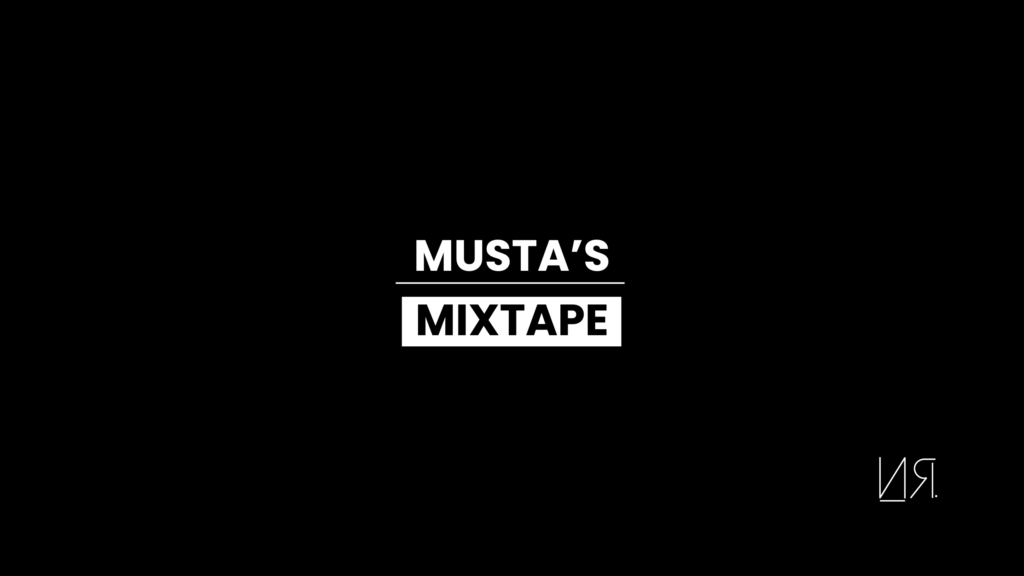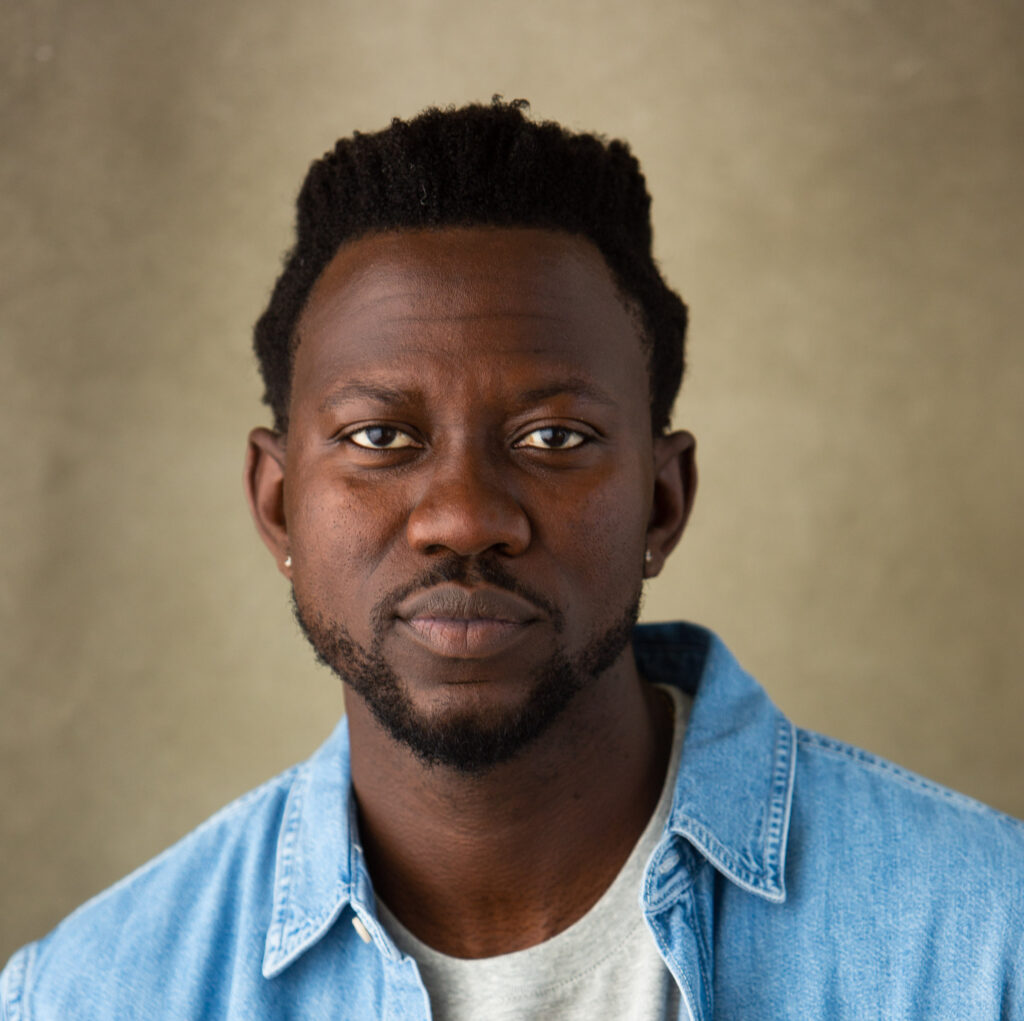This letter is going to be a little different. It’s about my new book and why it’s important to tell your story.
I’ve been writing a lot lately. It can get confusing to manage all the interlocking tasks.
As I sat down to write about all the stuff that goes around my book.
The book cover.
The stuff on the back cover.
The sales page on Amazon.
The Acknowledgements.
One of the things I had to write was the Author’s notes.
You’d see this in a lot of books. It’s the message from the author on why they decided to go through the process of writing.
Mine is due by the end of the week.
So I thought, why not just make it a letter and iterate it here.
What you’re going to read is my author’s note in progress.
Feel free to tell me what you think and yes if you find any typos let me know. Thanks.
Musta’s Mixtape Author’s Note
I write to reflect on the world around me.
It’s sometimes mainly an exercise to see what’s going on in my inner world as well as developing my craft. At the moment of writing, it’s an experience. Once it’s done, I can go back and monitor my growth. Ideally, I can contribute my reflection of the world to connect with others, making them reflect, feel entertained, and take action.
Stories are glues that help us coordinate.
Over the years, I’ve learned more about the importance of storytelling. At its core, it is one of humans most important technologies. It’s a network of ideas that allow us to coordinate at a scale that no other species can. It has allowed us to build vast networks across great distances. That’s why becoming a better storyteller is important to me.
And that’s what I hope to achieve with Musta’s Mixtape.
Musta’s Mixtape is a prequel to my award-winning debut sci-fi novel, TOFFY’S DIVIDE. In itself, like a story, it’s another link in the chain of ideas about what our world can look like as we venture deeper into the automation era, where rapid technological changes we see today leave a lot of us with the consistent battle of advancing but staying grounded.
Lost in the chaos, just like some of the characters in Musta’s Mixtape, stories act as an anchor to keep us glued to reality, providing us with tools to deal with the future as uncertain as it may appear.
The creative cycle
Let me take you back a bit.
My writing and storytelling journey started out with music. Music has been the gateway for my creativity. While I was living in Austin, TX, I had a flimsy brown IKEA desk next to my bed in my one-bedroom apartment. On that desk, I’d stay up at night, after work, watching YouTube videos on how to make beats.
I spent endless nights tapping off those beats on my Native Instrument maschine. I eventually started putting those beats online.
In 2016, I wanted to make another beat mixtape but decided to write up a short story about it first. That short story snowballed into a long novel that took five years to complete. During that journey, I joined a writing workshop and learned the publishing process. That’s how I published my first book, PRESS PLAY, a non-fiction book about how music inspires innovation.
A year after publishing PRESS PLAY, I finished my novel, TOFFY’S DIVIDE.
Then I finally released the mixtape that got me on this storytelling path. A year after that, I started writing Musta’s Mixtape on my phone.
The process itself is a reminder of the cyclical nature of creativity. One thing feeding into the other. I never started out to be a writer, but the music got me going. Starting out of nothing, everything is a catalyst for the next thing.
I can say that Musta’s Mixtape has been over ten years in the making and it’s a constant reminder to just get started. Embracing the present being the most important thing.
Storytelling to spark dialogue
Although, a lot of us spend most of our time everywhere but the present.
Which is in essence what I do here with this book, writing about “the near future.” I do this with the humility to know that no one knows what tomorrow will bring.
One of my favorite authors in the science fiction genre is Octavia Butler and in an essay she published in Essence magazine she reflected on a conversation she had with a young man that asked about some of the ‘troubles’ she discusses in her dystopian novels. She pointed out: “I didn’t make up the problems. All I did was look around at the problems we’re neglecting now and give them about 30 years to grow into full-fledged disasters.”
With this, writing becomes an examination of the present, a spotlight, and a tool of hope, sparking dialogue to reflect and solve society problems before they get worse.
My hope is to spark conversations with your friends, around dinner tables, with yourself as you turn the pages and get deeper into the world of Musta and the different self-indulgent characters of the council members and workers of J Enterprise.
Tech: Embrace the distraction?
My approach with this book was another way to embrace the present while also thinking about the future.
Technology gets demonized. Social media is criticized. It’s the reason why a lot of us are constantly distracted. It’s why our collective attention span dwindles. But is technology the issue or is it just showing us who we really are? A reflection of what we truly value?
Because it’s the same technology that gets criticized that has allowed me to write the entire draft manuscript of Musta’s Mixtape, casually on my phone across multiple time zones.
I wrote in Lagos, in an uber in Minnesota, in a car rental between Owerri and Umahia. I wrote in the bed while recovering from covid. I wrote in famous Parisian cafes where some of my famous authors just over half a century ago had to write in their notepads and then retype it all over again on their typewriters in their cold rooms in the middle of the night.
In each of these locations, I pulled out my phone to write for fifteen minutes. Someone from a distance could have judged me as another member of the “lost generation” whose noses are always drowning in their phones and social media feeds. That same phone has brought about the story you are about to read.
This writing challenge I imposed on myself was a creative constraint I used to redefine what publishing looks like in the 21st century.
At the same time I started this journey, I got interested in blockchain technology and its promise for decentralized ownership and access. I used it to crowdfund my publishing process. Another small technological experiment to test new ways of building community. It’s not perfect but it is part of the consistent transformative process that we are collectively part of.
And now everyone that participated in this journey has a record that will in essence be on the blockchain forever.
Nothing lasts forever
But can anything actually last forever.
At some point the words in this book will lose their essence. The servers that run the decentralized nodes of the blockchain will erode and return to its organic form.
Everything will shatter and go back to its atoms.
Perhaps that’s the driving fear at the center of it all. The inevitable. The reality that the sun that we revolve around will at some point die and go dark too. The future that we are so afraid of will come and then shrivel away. The future generation and those afterwards too. It will all go away, so we hang on to the past and the certainty it provides.
Religion and other constructs are built around bringing order to this future uncertainty in the form of an afterlife. But can technology replace this? With the advancement of artificial intelligence and biotech converging at a rate that at an eternal consciousness could be possible?
What does that mean for us to be human then? What ecological tax do we have to pay to make this happen? These are real questions we have to deal with.
The messy middle requires active participation
It’s easier to hold on to the idealistic past or believe we are headed to a horrific future, where the entire world is run by machines that the majority of us will be enslaved to.
The black and white of extremes provide us with comfort. The middle is just way too messy. The reality is that change is the only constant and it requires active participation and dialogue, otherwise you will be a passive participant that is acted on.
Using the past to think about the future provides some illumination, knowing that the past inspires the future.
For instance, Yoruba philosophy talks about binary computation. Ifa divination has a numerical system of 256 signature codes called Odu Ifa. The Odu Ifa are believed to represent all life situations, action, consequences, and circumstances. This is interpreted with the use of a chain of eight interlinked palm nuts. Each palm nut has two sides. Whenever this chain is flipped and lands on the ground it gives 256 possible combinations.
Why am I talking about this? Well, I’m Yoruba and I never learned this growing up in a British education system where revised history pushed this ancient wisdom to the back burner post colonization.
However, this system is exactly how your modern computing works through binary language, in the form of zeros and one. When you listen to music on your phone or look at a photo on your computer, you are experiencing a digital representation of reality. That reality is just a string of binary signals notated as 1s and 0s. Coincidentally, there are 8 bits in one byte of data, allowing for 256 unique combinations. Similar to the ancient wisdom of the Ifa numerical system.
It was fascinating for me to also later discover that Gottfried Wilhelm Leibniz, a German mathematician and the person who came up with the binary language that all our modern computers and AI systems run on, got his initial idea from a 9th-century Chinese divination manual, I Ching. The I-Ching represented binary poles of reality as Yin and Yang, often discussed as female and male. Like 1s and 0s, or the top and bottom of Yoruba string of palm nuts.
From the ancient Yoruba and Chinese divination and numerical systems to modern computing, these strings of ideas continue to propagate into the future, understating a very important piece of life – duality.
Duality is a theme explored in Musta’s Mixtape, through the stark difference between the technology-abundant and tool-deprived polar sides in J City. It’s also seen through the perspective of Musta who struggles with balancing the old and the new through sounds and technology, grapples with discerning between signal and noise, and deals with the internal conflict of fulfilling selfish desires and connecting with something greater than himself.
Perhaps this is something we all struggle with, finding balance in life, at work, in relationships.
Music as a storytelling tool
But what’s the tissue that holds all these ideas and technologies together?
How is ancient wisdom propagated into the future?
Back to why storytelling plays a very important role.
Stories guide us as we create the future.
Technology advancements come with its two sides of the same coin – it’s benefits and challenges. With whatever new tool, it’s all about who’s hand it resides in and whether it’s used for good or bad – a definition that varies from person to person. This moral question and how it’s applied to the tools we have access to is explored through Musta and the other characters in J City.
Musta’s Mixtape is a story about finding purpose, making a mark, and choosing how you spend your time, what you do, and who you do it with. Combining the old with the new to embed some soul into new technology.
I do this through the lens of music, combining different ideas similar to how I sample my beats. I sampled ideas from albums, songs, books, videos to bring a narrative that is a mixtape of the past blending into the future. I do this in a way that you might not explicitly expect. So as you read this story, do it with an open mind and no expectations. Whenever you open the pages think of it as putting on your visual headphones with the words taking you on a buoyant voyage.
Music is a storytelling tool. It is a unique experience. No other species experiences music the way we do. It is a powerful tool to build empathy and pass on information.
This story brings my initial spark to create a mixtape full circle. Now I do it in a book.
The story is a reflection on the present and a question on the type of world we want to build in the future.
And we are all responsible for that future.
Yours truly,
Nifemi
P.S. If you made it this far, can you reply with one thing you liked in my author’s note that would make you want to read this book.



